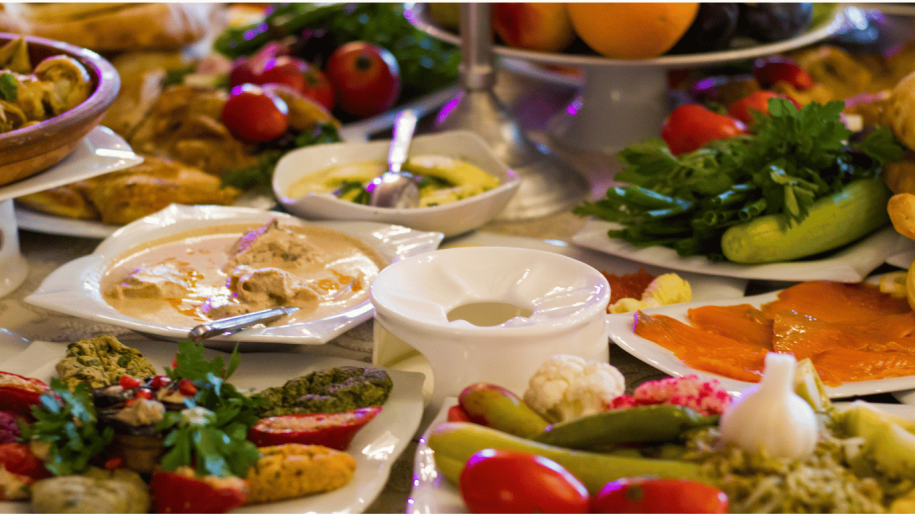Welcome to the vivid, diverse, and aromatic world of Moroccan cuisine. A rich blend of cultures and civilizations is reflected brightly in the dishes prepared in this enchanting country. Berber, Arab, French, and Spanish influences merge in a brilliant symphony of flavors. This exploration of food in Morocco will take you on a culinary voyage that celebrates the nation’s unique traditions, iconic dishes, and artistry that has been passed down through generations.
Table of Contents
1. A Historical Overview of Moroccan Cuisine
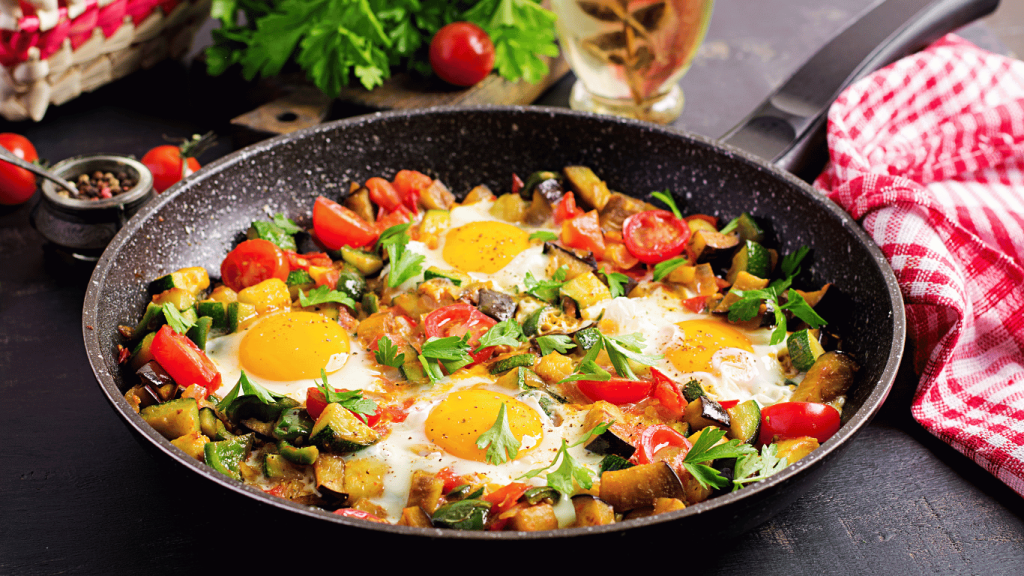
Moroccan cuisine is one of the most diverse gastronomies in the world, with centuries-old traditions and influences from various cultures. The unique geographical location of Morocco, as a gateway between Europe and Africa, has allowed a fascinating amalgamation of flavors and cooking methods. The Berbers, Arabs, Andalusians, and French have all left their imprint on Moroccan food, resulting in a cuisine that is as rich in history as it is in flavor.
2. The Fundamental Ingredients in Moroccan Cuisine
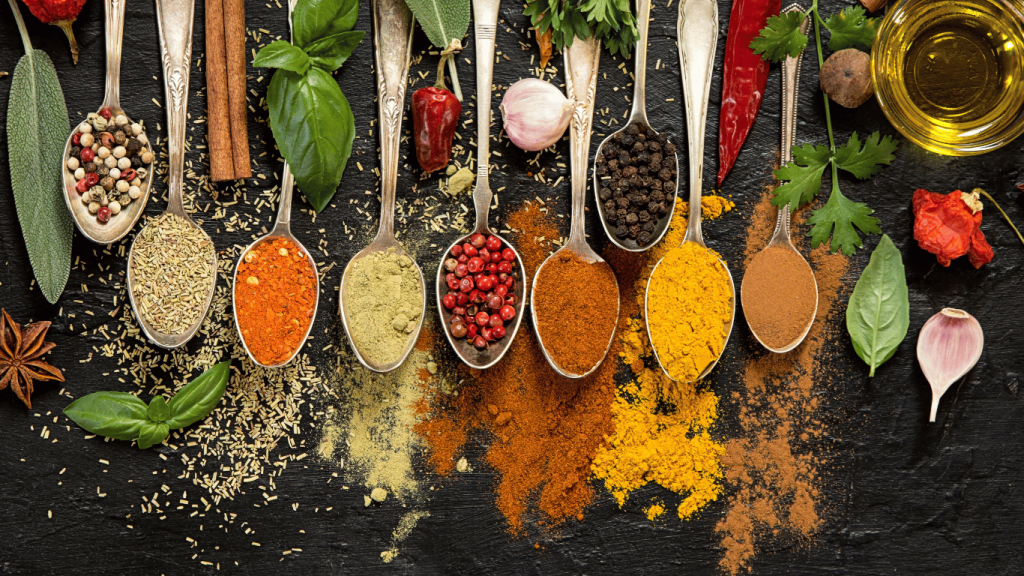
A myriad of ingredients gives Moroccan dishes their distinctive taste. Herbs and spices like cumin, coriander, saffron, mint, cinnamon, and Ras el Hanout are frequently used. Olive oil, lemons, and garlic add a tangy freshness to dishes, while couscous, lentils, and various types of meat provide substance.
3. The Art of Moroccan Spices
Spices are the heart and soul of Moroccan cuisine. The country’s spice markets, or ‘souks,’ are a sensory feast, with mounds of vibrant, aromatic spices piled high. The right blend of spices can transform an ordinary dish into a culinary masterpiece. The secret to food in Morocco lies in the delicate balance of these flavors, creating an unforgettable harmony on the palate.
4. Famous Moroccan Dishes You Should Try
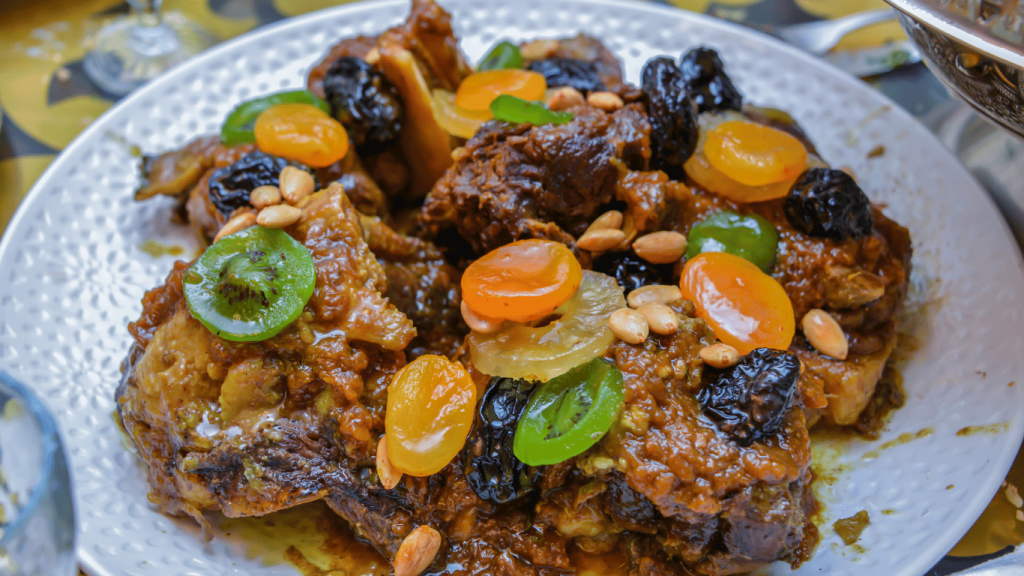
1. Tagine 2. Couscous 3. Tanjia 4. Fried Chicken 5. Trotters 6. Pastela 7. Rfisa 8. Zaalouk
The variety in Moroccan cuisine is truly awe-inspiring. From the national dish couscous to the hearty tagine, from the street-food staple still to the breakfast favorite Harcha, the diversity is endless. Each dish tells a story of Morocco’s cultural heritage and regional variations, offering an authentic taste of this remarkable country.
5. Moroccan Couscous: The National Dish
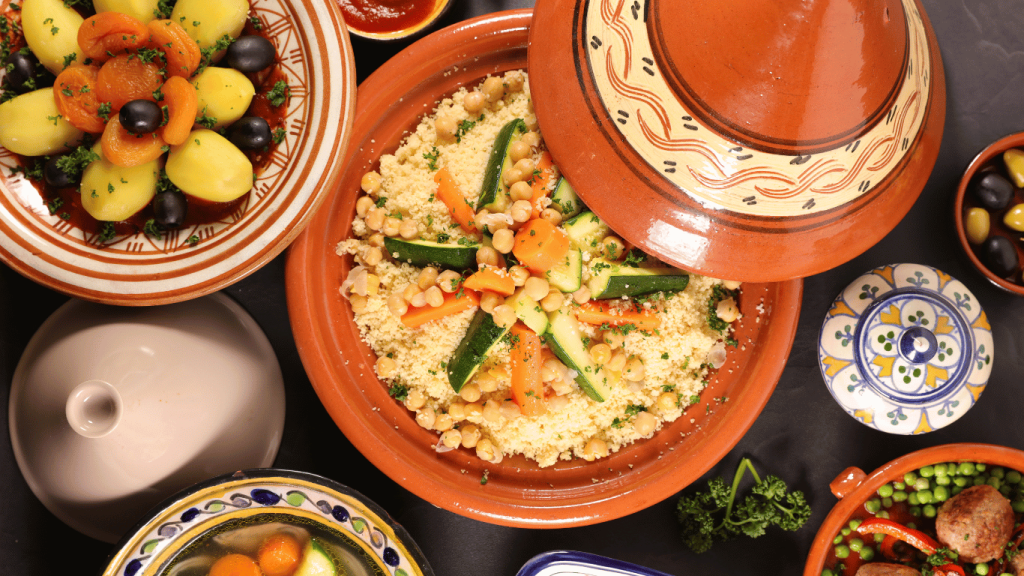
Couscous, a dish so integral to Moroccan culture that it has been listed as a UNESCO Intangible Cultural Heritage, is a must-try. It’s a versatile dish, often served with a medley of vegetables, meat, or fish and a flavorful broth. The preparation of couscous is a time-honored tradition, often reserved for special occasions and family gatherings.
6. The Magic of Moroccan Tagine
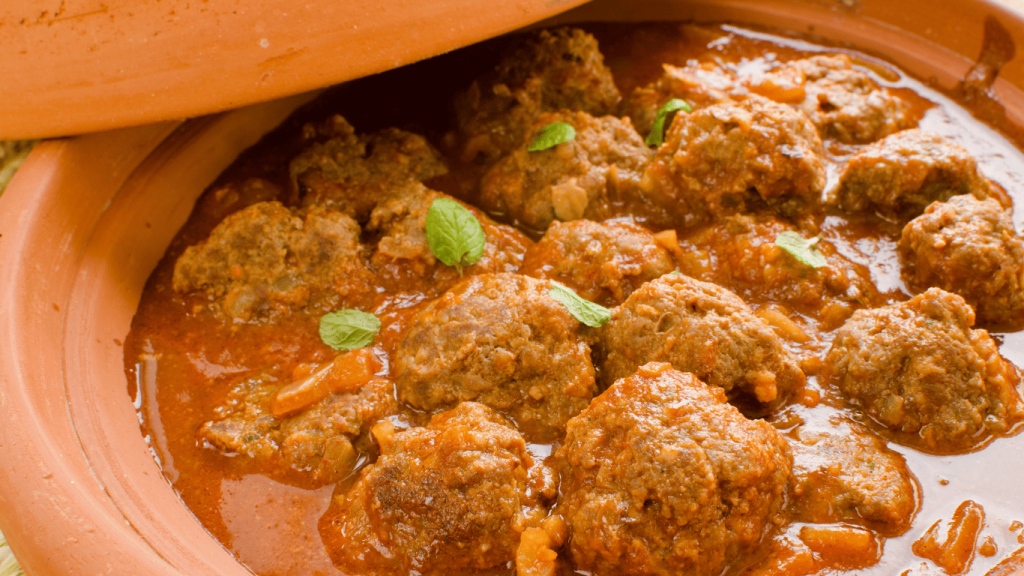
The tagine, both a dish and the clay vessel it’s cooked in, is synonymous with Moroccan cuisine. This slow-cooked stew features a range of ingredients from lamb, chicken, and fish to a variety of vegetables, all cooked to perfection in a medley of Moroccan spices. The unique shape of the tagine pot allows for a slow-cooking process that enhances the flavors, creating a mouthwatering, tender meal.
7. Moroccan Street Food: A Feast for the Senses
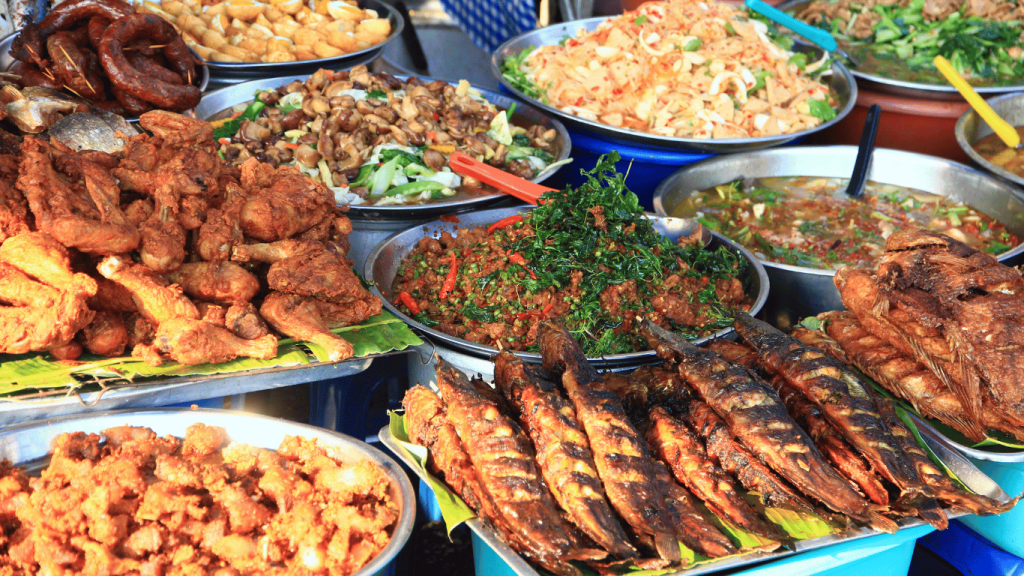
1. Khobz 2. Harira 3. Brochettes 4. Orange Juice 5. Snails 6. Nougat 7. Shawarma or Sandwiches 8. Sugared Peanuts From bustling medinas to seaside stalls, street food is a cornerstone of Moroccan culture. Indulge in the delectable Msemmen, a Moroccan pancake. Enjoy the sweet and savory flavors of B’stilla. Delight in a bowl of Bissara, a warm split pea soup. Moroccan street food offers an array of flavors, each one a testament to the nation’s rich culinary heritage.
8. Moroccan Bread: The Essence of Every Meal
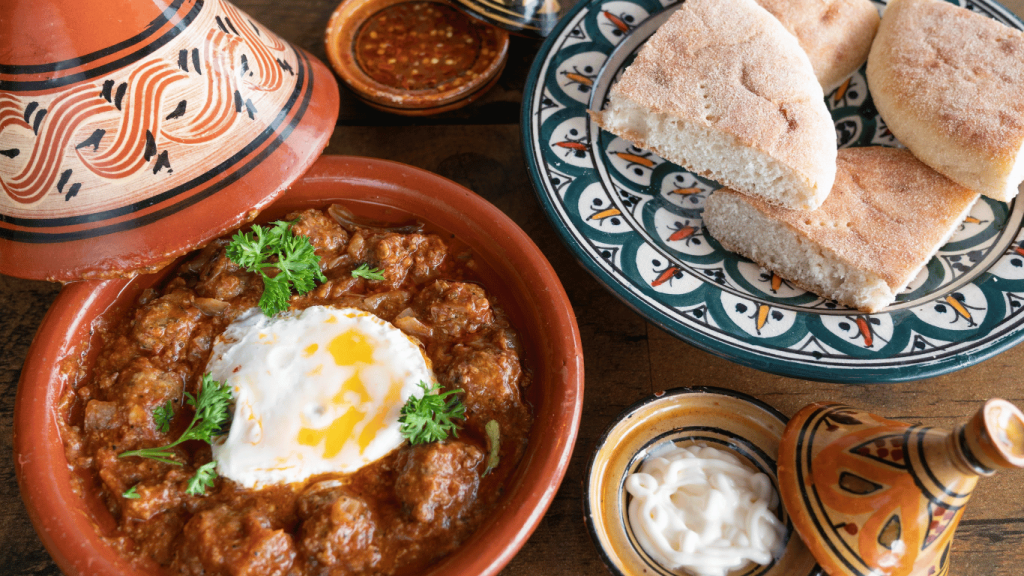
Bread, or khobz, is a staple in every Moroccan meal. It comes in various forms, from the flat and round traditional bread to the semolina-based Harcha and the flaky, layered Msemmen. Bread is more than just a side dish in Moroccan cuisine; it’s an edible utensil, a symbol of hospitality, and an essential part of the Moroccan dining experience.
9. Moroccan Sweets: A Finale Worth Waiting For
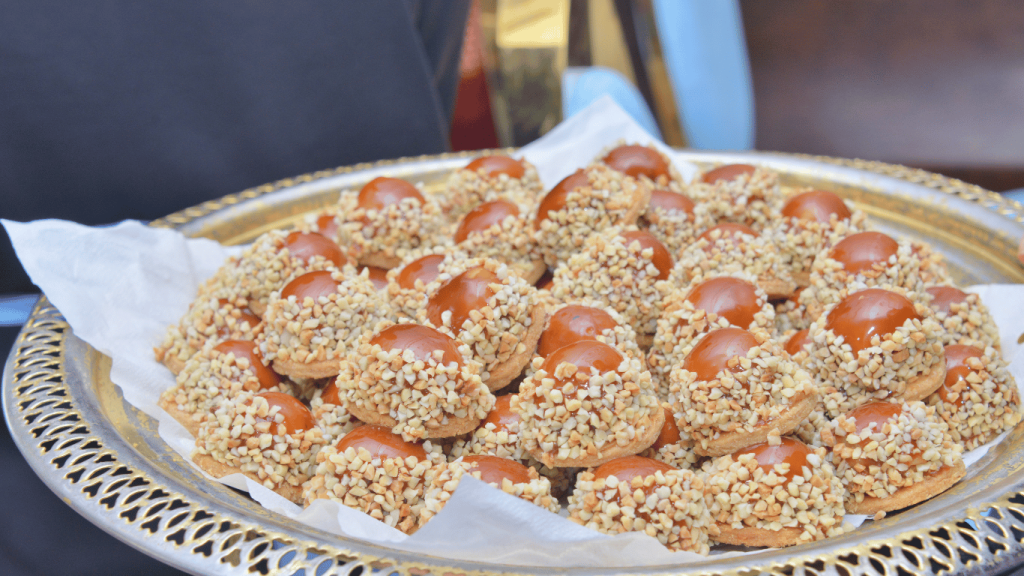
Moroccan sweets are a delightful way to end a meal. From the honey-drenched Chebakia enjoyed during Ramadan to the almond-filled Kaab el Ghazal (gazelle’s horns) and the irresistible Sfenj (Moroccan doughnuts), these desserts are a heavenly treat for the sweet-toothed. The use of ingredients like dates, honey, and almonds is common, often combined with fragrant spices like cinnamon and aniseed.
10. Moroccan Mint Tea: The Drink of Hospitality
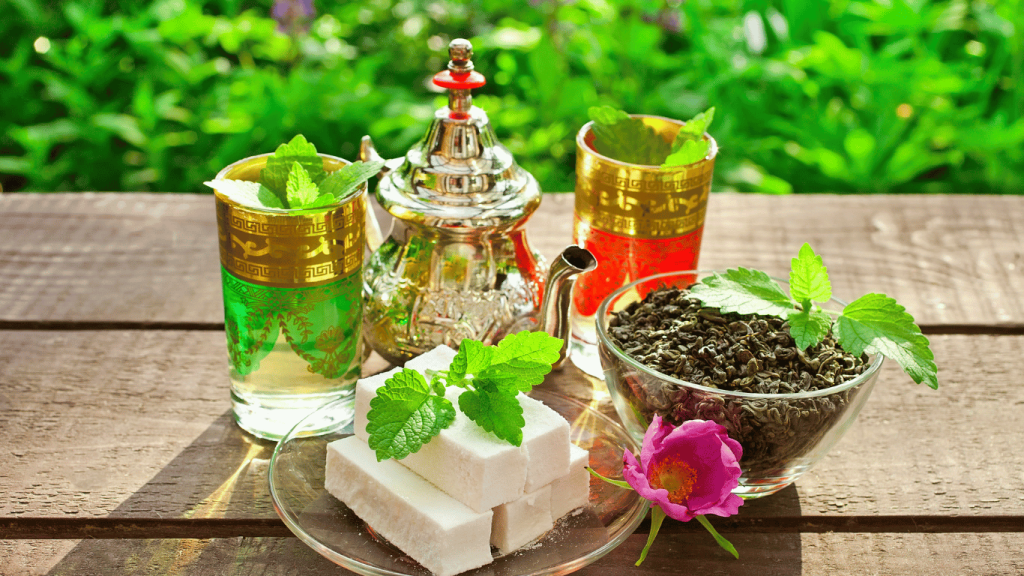
No discussion of food in Morocco would be complete without mentioning Moroccan mint tea. Often referred to as ‘Moroccan whiskey’ due to its importance in the local culture, this sweet, minty beverage is a symbol of hospitality and tradition. The tea ceremony, from brewing to pouring, is an art form in itself, reflecting the Moroccan spirit of hospitality and friendship.
11. The Future of Moroccan Cuisine: A Blend of Tradition and Innovation
While Moroccan cuisine is deeply rooted in tradition, it continues to evolve. Modern Moroccan chefs are introducing innovative twists to classic dishes, blending the old with the new. This innovative spirit, combined with a respect for traditional methods and ingredients, ensures the enduring appeal of Moroccan cuisine on the global gastronomic stage.
Conclusion
Moroccan cuisine, a vibrant tapestry of cultures, flavors, and traditions, offers a unique culinary journey for every food enthusiast. From humble couscous to exquisite tagine, ubiquitous Khobz to delightful sweets, each dish reflects Morocco’s rich heritage. The careful blend of spices, freshest ingredients, and intricate preparation techniques make food in Morocco a feast for the palate and the soul. As Moroccan cuisine evolves while staying true to its roots, the world’s love for its flavors will endure. So here’s to exploring, experiencing, and, most importantly, savoring the culinary wonders of Morocco. Bon Appétit or, as they say in Morocco, “Bssaḥa w raḥa”!

